This article provides a comprehensive outline of the Thai citizenship application process. We take potential applicants through the steps involved in detail, including the points system and how your application is assessed.
The process outlined here applies to two categories of people:
- Those who hold Thai permanent residency; or
- Foreign males married to Thai citizen wives who are allowed to skip Thai PR.
In all cases, when applying you’ll need to meet the following minimum thresholds as well:
- Three years of uninterrupted extensions of stay at the time of application (if applying based on marriage);
- Permanent residents who apply need to have held PR for 5 years;
- Three years of unbroken work permits from a Thai employer at the time of application;
- A minimum income of 80,000 baht per month (not married a Thai national) or 40,000 baht per month (if married to a Thai national);
- If applying based in marriage to a Thai citizen, having been married for three years (if you have no children) or married for at least one year (if you have children).
If you are a foreign woman married to a Thai husband, then please read this article, as the process is slightly different for the wives of Thai husbands.
If you are single or not married to a Thai national, you need to obtain Thai permanent residency first, which you can apply for after a full three years of uninterrupted work permits. After holding PR for 5 years, you will then be eligible to apply for Thai citizenship.
At the time of printing this article below remains valid. Applications are still being received by the Thai Special Branch and will be processed under current rules. We suggest those who are looking to apply for citizenship do so quickly, as we do not have any visibility yet as to how the rules will change. |
Navigating the Points System
Determining if you qualify for Thai citizenship is based on a simple scoring criteria. We’ve outlined in detail the points system in an article here.
It is worth familiarising yourself with the different sections, but the broad-brush strokes are that you’ll need to score 50 out of 100 points to be able to apply for citizenship based the following criteria.
- Qualifications of the applicant (maximum 25 points)
- 1.1 Age (10 points)
- 1.2 Education (15 points)
- Security of profession (25 points)
- Length of civil registration – i.e. the length of time on a tabien baan (20 points)
- Thai language ability (15 points)
- General knowledge about Thailand (10 points)
- Personality, appearance and expression (5 points)
Reading how the points system is structured, it becomes pretty apparent that the system is designed to facilitate citizenship for those who are in full time work in Thailand, earning a reasonable salary and who have some level of post-secondary education.
The system also rewards you for the time spent in Thailand, as well as your ability to speak, read and write Thai. As such, different applicants who are weaker in some categories can potentially make up points in other areas.
Laying the groundwork so you qualify for Thai citizenship
Simply working here legally for three years, holding PR or being married, and earning the minimum salary – whilst necessary for applying for Thai nationality – it is not sufficient.
As such, people reading this far might not yet be in the position to apply, but there are a number of basic things you can do to put yourself in good stead for an eventual application sooner rather than later.
Much of the documentation required which Thai Police Special Branch gives you is rather straight forward. We’ve translated this for you at a separate page, here.
For those who are strategic about their approach to their application however, there are a few useful tips and tricks to maximise your points to qualify for Thai citizenship.
While at first glance they might appear daunting, most of these steps should come pretty much organically for those who are looking to put down roots here and who interact with Thai friends and colleagues on regular basis.
Setting in place the suggestions below could potentially add 28 to 36 points to your total score:
1) Yellow Tabien Baan (ทะเบียนบ้าน): Quite simply, get yourself registered on one as your application can’t progress without being on a yellow tabien baan. The earlier the better. The scoring criteria offers points for people who have “evidence of civil registration showing domicile in Thailand for at least 5 years”. In plain English, this means being registered on the yellow Tabien Baan (see this article on getting yourself registered on one). If you are just exploring the possibility and are still a few years off applying, then this is an easy 5 points towards your 50. It is also worth noting that there have been some anecdotal reports of people getting the 5 points even though not having held it for the entire five-year period.
2) Understanding basic Thai civics: Part of being a future citizen is knowing some things about how the country works and some of its symbolism. Applicants are offered a maximum of 10 points for answering multiple choice questions in Thai on a range of questions from how many provinces there are to what the Thai flag represents – so brushing up on these things can help your points tally immensely. We’ve taken the liberty to outline some of the common questions you may get in this article here.
3) Speaking conversational Thai: If your points from education and salary levels are dragging you down, then having a decent level of comprehension and ability to speak will add an extra 8 points to your total. From what we have heard and seen, this by no stretch means fluency – but neither does it mean ‘taxi Thai’. It does imply however that you can have a relaxed conversation with the special branch police and be able to talk about yourself with confidence, your history and why you want to apply for Thai citizenship.
4) Learning some Thai mannerisms: This is a harder one to quantify, and the granting of these points by Special Branch is quite subjective, but “personality, physical appearance and bearing, speech, Thai manners, attitude towards Thailand, Thai culture and ceremonies” will net you a further 5 points. In other words, a combination of dressing well for your interviews, learning to ‘wai’ properly, proper greetings and the more ‘formal’ words in your discussion, appropriate use of polite articles such as ‘krup’ (ครับ) and coming across as being respectful and courteous will go a long way to getting you these points.
5) Applying at the right age: You’ll also score points for your age. Younger applicants score less than those in middle age. Those older than 60 are awarded less points. As such, the optimal age to apply is between 40 and 50 and will automatically get you 10 points for doing so.
—
Of course, everyone’s circumstances will be different, which will mean you can take or leave some of the above-mentioned tips and strategies. Still, focusing on these are usually gets peoples applications ‘over the line’ to reach the magic score of 50 out of 100 points.
In addition to maximising your point score, there are a few tips which will mean that your application is accepted at the first try:
Charitable donations: Special Branch are going to want to see that you have a verified history of charitable donations. Five Thousand Baht a year of donations is the magic number, so make sure you dig up your receipts from past donations (or start making some well in advance of applying – one off donations of 5000 baht are fine too, so long as it done in advance). What Special Branch won’t like however is if you have just made the donation so as to apply for citizenship, so any evidence that donations were made ‘recently’ will not go down well with them.
Bank letter addressed to Special Branch: Your application will require a verified 80,000 baht deposited in a Thai bank account at the time of applying, verified by your bank. Most banks are used to writing verification letters to immigration in support of marriage or retirement visas, and probably will have a pro-forma letter template for this verification. Ensure that they don’t use this one and address the bank letter to police Special Branch instead.
Choosing a Thai name: As part of the process, you’ll need to formally choose a Thai name which is unique. You can use this link to check if your name doesn’t clash with any existing names.
Two Thai witnesses: An easy one, but you’ll need two Thai citizens who know you to come to Special Branch and vouch for your background. This will need to be done before the application package can be finalised by them and then sent off to the Ministry of Interior.
Where to Apply for Thai Citizenship?
Special Branch, National Police HQ, Bangkok
Like all others who apply for Thai citizenship, the reality is that Bangkok is the best, and often the only place to apply for citizenship.
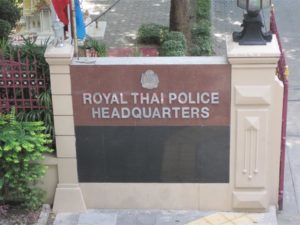
If you normally reside in Bangkok and have your registration there, and your wife has her house registration (if married) – the ‘tabien baan’ (ทะเบียนบ้าน) – and ID card (บัตรประชาชน) at the same address in Bangkok, then all applications must be made at police Special Branch, who’s location is at the National Police Headquarters on Rama 1 Road. For those who know Bangkok well, it is across the road from Central World. Details can be found here.
Important note: If you are based outside of Bangkok and registered in another province, applications need to be made at the local division of Special Branch in that province. Except for the list of offices, we outline below, applying via your local Special Branch offices is likely a non-starter. Local officers aren’t trained or equipped to handle applications and if they do somehow take your application, there are stories where peoples applications remain there gathering dust or being delayed by years before they are sent to Bangkok.
The long and the short of it is that the most efficient strategy is to bite bullet and find a friend who will allow for your names to be put on their Bangkok based house registration. The Special Branch people in Bangkok know the challenges of applying elsewhere, so they won’t mind at all that you have moved your registration to Bangkok simply for the purpose of the application.
Provincial Special Branch locations
In recent years we’ve received positive reports of certain offices outside of Bangkok being helpful towards citizenship applicants. This is good news as all the meetings, including the final meeting with the Ministry of Interior officials, are conducted in the province, saving trips to Bangkok. The one caveat is they have slightly different interpretations of the rules, including making all applicants (even those who are married to Thai citizens) sing the national and royal anthems as part of the process.
Google map links to these offices are:
Chiang Mai: Chiang Mai Special Branch.
Chonburi: Mueang Chonburi Police Station
Phrae: Phrae Police Provincial Office
Phuket: Phuket Police Station (Special Branch crime division office is situated to the left)
Initial meetings with Thai Special Branch…
Your initial meetings with Special Branch will be unofficial. It is normally okay to drop into their offices and ask for the required documentation list. They officers will ask you about the basis of your application and highlight which documents on the list they will need. Two or three visits back will likely be needed until the officers are sure that you have all the documents and they are in order (properly translated etc). Once this is done an official appointment will be made.
The formal meetings
The officer in charge of your case will set an appointed time, and you (and your spouse if applying based on marriage) should attend. The meeting will usually consist of an initial interview with your case officer, followed by a meeting with a senior officer who will formally ask about your intentions and give you the multiple-choice questions.
The process usually begins about asking standard questions about yourself, background, current employment, and your relationship (if married). They will formally check your documentation, and for the non-discretionary points (age, education etc.) allocations will be made. There will be lots of document checking, asking you to sign on verified copies of the documents and the officials formal application – which they will type for you.
Depending on the applicant, the initial case officer also may take the opportunity to give you a ‘mock’ interview – many of the questions what will be asked not only by his senior officer, but also down the track when you meet the NIA – National Intelligence Agency (สำนักข่าวกรองแห่งชาติ) and the Ministry of Interior.
You’ll then be asked to go upstairs at Special Branch to meet the senior officer.
Similar questions will then be asked about your history, background and current status, both personally and professionally. The multiple-choice civics quiz will then be given and an assessment of your Thai language ability (speaking, reading and writing) and general appearance and personality will be made.
Finger prints will also be taken, and you’ll be asked to pay the application fee of 5000 baht at this point.
For the most part, these interviews are very friendly and the officers are generally encouraging for people to succeed. If you’ve gotten this far, the officers generally will be confident that your application will make its way seamlessly through the rest of the process at other agencies. For those whose Thai language ability isn’t as strong, they’ll generally ask that you continue practicing so to be able to better interact with officials later in the process.
At the end of the meeting, you’ll be told to expect a call within the space of 3 to 4 weeks for a meeting with the NIA.
Thai government agency verification
You’ll also be given envelopes from Special Branch which need to be taken by you to different agencies around Bangkok to verify certain things. This may include letters to:
- Immigration requesting verification of your Permanent Residency Status (if applicable)
- Your local district office verifying your marriage (if applicable) and name change (to for your Thai name)
- Your embassy to verify your passport details, as well as a letter of your ‘intention’ to renounce your existing nationality upon acquiring Thai nationality (Please click this link to read up about this topic)
These agencies will then be asked to either post the responses back to special branch, or in some cases, they will ask them for you to return them yourself.
Special Branch will then also liaise with other agencies (tax, visa, work permit) to verify these documents. The timeline is approximately 60 days, and after verification your application and associated documentation will handed off to the Department of Provincial Administration (DoPA) at the Ministry of Interior ‘กรมการปกครอง กระทรวงมหาดไทย’ which processes the application.
External Interviews
National Intelligence Agency
Following your initial meeting with Special Branch, another interview will be organized with the National Intelligence Agency (สำนักข่าวกรองแห่งชาติ).
Up to about 10 years ago, the NIA would ask to meet applicants in a mall somewhere near downtown Bangkok. Favourite venues included KFC’s or McDonald’s and would be surprisingly informal – and bizarre – experience based on the venue.
These days you will be invited to their offices of the National Intelligence Agency or if not, then they will also arrange meetings in some non-descript government offices near the Ari BTS station or via Zoom.
Again, you will be asked to bring along all of the documents used in the initial application most of the same questions will be asked again.
For most applicants, it is a relatively short ‘chat’, going over your background again. The officials will also weave in why you want Thai citizenship. Fluffy and overly obsequious reasons don’t go down well – according to the NIA people themselves. ‘Practical’ reasons are best. These include:
- Not needing to have work permits;
- To have rights with regards to things like land ownership; and
- Doing away with the need for visas.
The NIA officials also ask about salary and assets. It is probably best to be honest here as ultimately the officials want that the applicant will not ultimately be a burden on the state.
Local police interview
Within this first 90-day period, you’ll potentially also be required to schedule an appointment at your local police station in the district you are registered. This step used to be more common in the past but happens sporadically, depending on the district. Here the police will again interview you – and also your nominated witnesses – asking basic questions about your relationship status and family situation (if married), which they will type up in a report and send back to Special Branch HQ to form part of your application.
Ministry of Interior (AKA the ‘black hole’)
Following your meeting with the NIA, your application is forwarded to Department of Provincial Administration (DOPA) at the Ministry of Interior (กรมการปกครอง กระทรวงมหาดไทย).
At this stage documents will be checked again and crossed checked that the application complies with the Nationality Act itself, and whatever ministerial regulations and interpretation are applicable.
None of this you will see or know about, unless, as does sometimes happen, DOPA finds a slight discrepancy or issue with the application, which will result in either DOPA or Special Branch calling you for supplementary paperwork.
For most applicants however, when the application hits DOPA, all they hear about their application is complete silence.
Working while your application is processed
One thing that can potentially trip applicants up is the issue of work permit continuity.
Applicants who are looking to apply for Thai citizenship know that they must be in Thailand on 3 years worth of consecutive work permits and extensions of stay before they are eligible to apply (though a few days between an old work permit expiring and the new one beginning seems to be fine, though admittedly a grey area and open to interpretation).
However, once you have applied and your application has been accepted by Special Branch, it is important to know that you should continue to remain qualified during the processing period and up to your citizenship is formally announced in the Royal Gazette.
In other words, maintaining your work permit, minimum income levels, tax payments and of course, being married if you are applying on that basis.
This is because during interview process, your marriage certificates, visa and work permits can be requested by officials. Secondly, in rare cases, DOPA and the Ministry of Interior may find a slight discrepancy in the application submitted by Special Branch – in which case the application technically has to be resubmitted – requiring you to be fully eligible at that point too.
The final BORA/DOPA/Ministry of Interior interview
Depending on a range of factors, the government of the day, the level attention that the Minister in charge places on citizenship applications, applicants will receive notification from Bureau of Registration Administration (สำนักบริหารการทะเบียน) or ‘BORA’, via Special Branch, that you will be required to attend a final interview with the large committee which formally considers all applications and then recommends to the Minister to approve them.
The standard wait time for getting to this stage is often 1 to 3 years, with little explanation as to why people experience different wait times.
What is ‘normal’ about this stage of the process is that you’ll typically only be given 10 to 14 days notice of this meeting, often less. So it is often a case of dropping everything to make sure you can attend. The notification from DOPA will come with a list of documents you need to bring for the interview, which is basically every piece of identification, passports, visa and registration you have in Thailand.
What happens at the meeting?
The Thai citizenship interview itself is formally hosted by the Minorities and Nationality Section which is a part of the BORA which sits under DOPA, which is a part of the MOI.

- source: DOPA
All applicants for Thai citizenship are interviewed in a conference room by a committee. This can consist of 20 to 40 officials from different agencies (as required to be present under the Thai Nationality Act) sitting around a horseshoe shaped conference table, with you and your spouse at the front of the room sitting at a table facing everyone.
The conference room is typical of what you’ll find in every government office across Thailand with microphones on each desk. The atmosphere is formal, but everyone is friendly and polite.
By this point, you will be well versed and practiced in many of the questions that will be asked – information about yourself, your background, and your relationship. You may be asked why you want to get Thai citizenship and about your employment. Some applicants have mixed English into their Thai answers, and this appears to have been fine so long as your overall passing score doesn’t rely on Thai language abilities. But if you are relying on some points for Thai language skills, then obviously prepare a good 5 minute spiel about yourself, your background, work in Thailand and your family.
If the application is based on marriage to a Thai spouse, applicants are waived from having to sing the Thai national anthem and the Royal Anthem (Sansoen Phra Barami/สรรเสริญพระบารมี). However those with PR and applying on that basis will need to sing the anthems.
Uncontroversial applications are often very quick, lasting only a few minutes. If there were questions or concerns, the committee often takes longer.
Getting the Thai ID Card
Following the BORA interview, there can be another long gap of a few months to a year or more.
The BORA committee will make a formal submission to the Minister of Interior to approve the Thai citizenship application, which then must also be countersigned by HM the King, before it can be published in the Royal Gazette.
Following this, applicants will also need to undergo a formal citizenship swearing in ceremony at Special Branch headquarters. A few months later, you will also receive a naturalisation certificate along with certified copies of the announcement in the Royal Gazette.
With all of this in hand, you can then go to the district office. It will likely the case that you will need to schedule a meeting with the appropriate person there, where they will again check all the required documents from you, and where they can move your yellow tabien baan registration to the blue tabien baan if you are not already registered on the blue one. Following this, you will be able to move over to the Thai ID counter to have your new Thai ID issued.

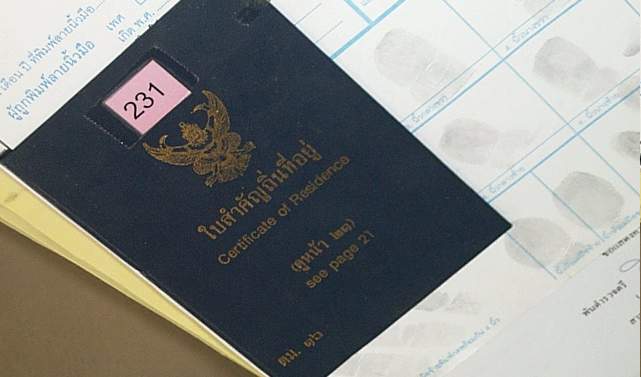
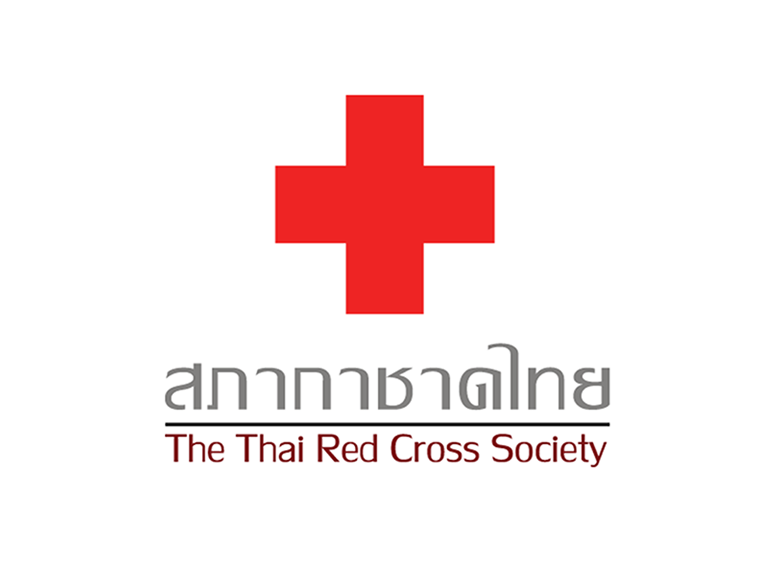
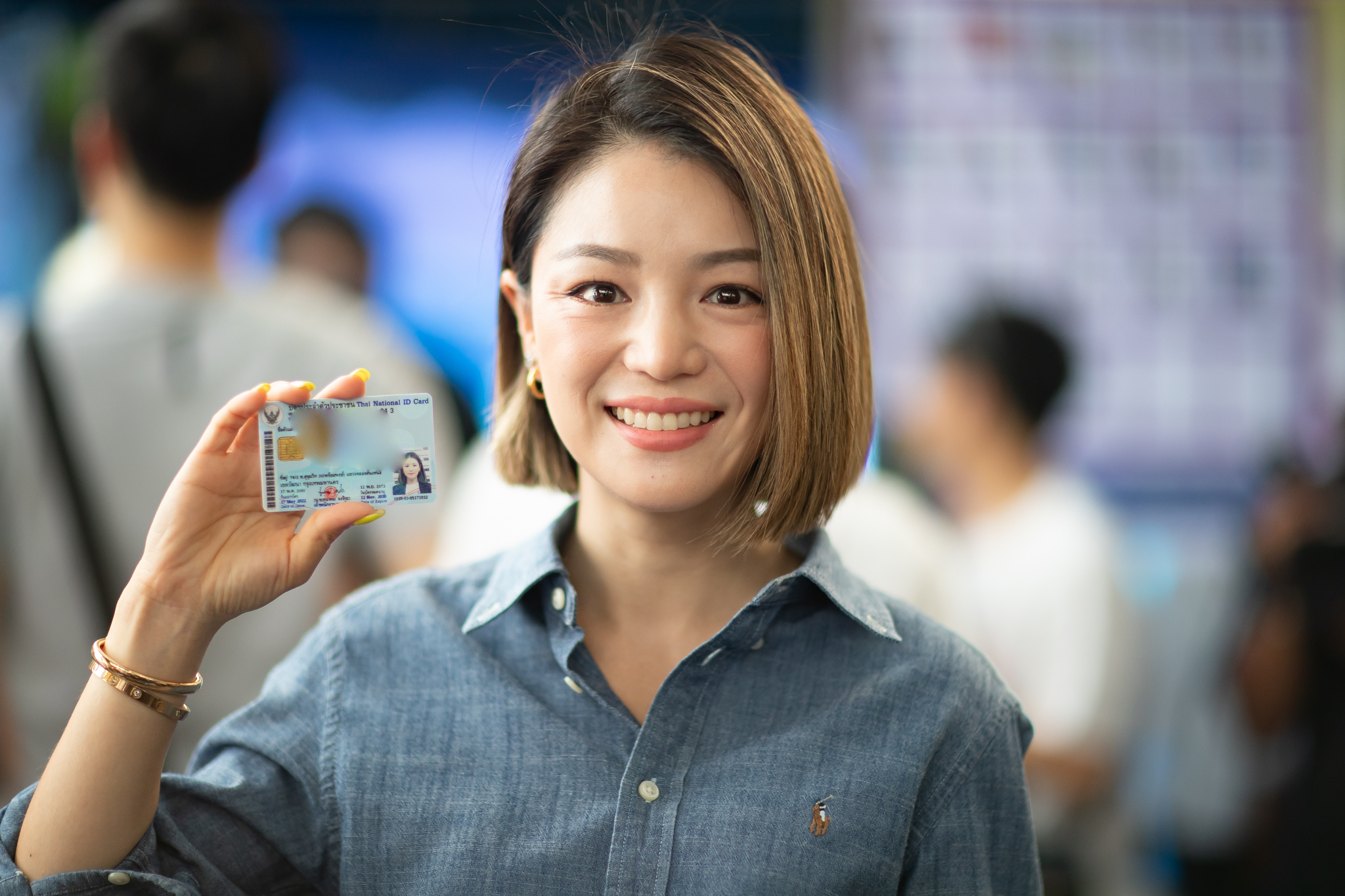
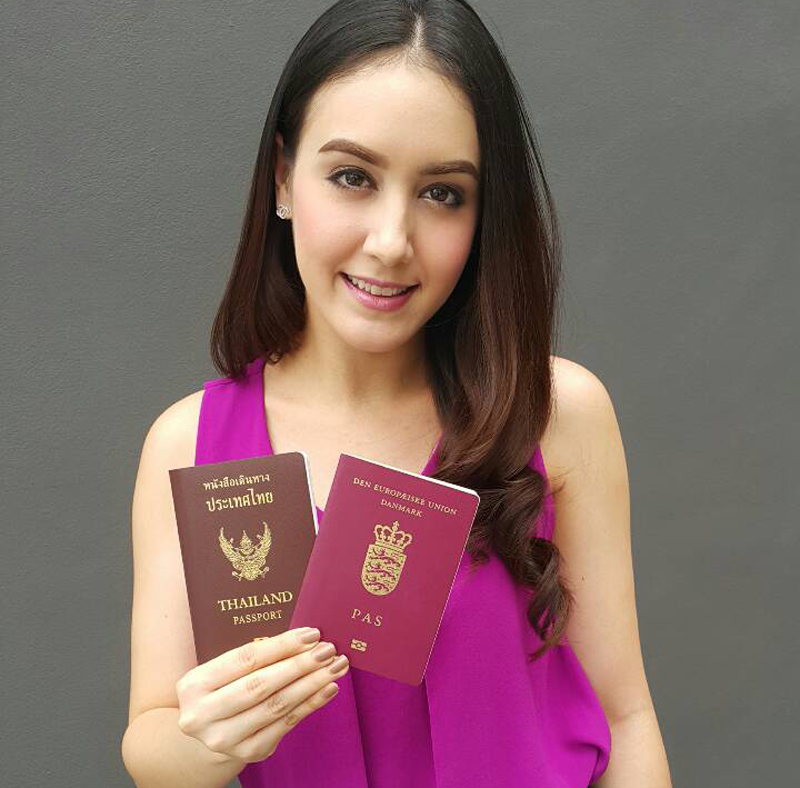



First of all, thank you for making such an extensive and informative resource available to the public. A couple of small points that I would like to clarify: do you need to actually be living at your tabien baan address and how many years of charitable donations are they looking to see?
I have been married for 1 year so I am looking to apply in 2 years time. Thank you in advance for any insight you can offer.
Hi there,
No need to be living at the address you are registered. As I say in the article, many people move their TB to a different province so they can apply.
In terms of donations – no minimum amount. Anything 5000+ more than 6 months in advance of application usually does the trick.
Cheers
TC
Is there a set of charities that are recommended to donate to ?
Any legitimately registered charity which can give you an official receipt. Totally up to you which cause means the most to you.
Hi thanks for all your information it’s very well presented and easy to understand, very much appreciated. Is there any path to Thai citizenship by a retired person married to Thai women? I have not had any work permits. 67 years old and lived in Thailand for the past 4 years.
Thanks
Shane
Hi Shane,
Thanks so much for the compliment and glad you’ve found it useful.
I hate being the barer of bad news, but unfortunately given you aren’t working and playing taxes on that employment income there is no real path to citizenship for you. In case you decided to come out of retirement and work here for 3 years earning 40K per month, then there would be.
Cheers
TC
First I’d like to thank you for all the information on this site – it has been a tremendous help. I would like to ask if there is any article detailing the process after aquiring citizenship? Ie. what to do with old visa, WP and other documents?
Hi Jay – thanks very much!
Not really. You just go down to immigration and get your last visa cancelled. Its then a matter of changing your registered ID number on your Drivers License, Bank accounts etc. Not sure if you are allowed to keep your WP, but may be worth trying to keep it as a souvenir.
There are actually very sound reasons why to do so – which I discuss in section 4 of this article here: https://www.thaicitizenship.com/thai-dual-citizenship/
Hope this helps!
First of all, your site is awesome. I have spent the morning going over the website, facebook page and your prompt and thorough answers to the many comments on the website.
My question is simple (I think). I qualify for applying under PR route and married to a Thai national route (married 12 years with one child). My language skills are OK and I have no problem trying to learn the national anthem.
Is one route better than the other (PR or married to a Thai), assuming that I, as the applicant, am not terribly concerned about language and singing requirements?
Hi Stephen – glad you’ve found the site useful.
The qualifications for PR and citizenship are pretty similar, the only difference is that being married to a Thai citizen allows you to skip needing PR before applying for citizenship. Given that citizenship gives more rights and benefits, then it makes sense to go for citizenship.
Being married to a Thai means language requirements are waived for citizenship applications so it’s definitely an added bonus. Whatever your language levels, given citizenship applications are based on a points system, you will be given points for your language skills one way or another, so they’ll go towards your score regardless. So if you think you need boost on your points score to get over the line, then boning up on your language and singing skills can certainly add to them.
Hi thanks a bunch for the reply. One clarification on my end – I already have PR, so what I’m getting at is whether I should seek citizenship based on (i) the fact I already have PR or (ii) the fact I’m married to a Thai for 12 years with one kid. Just wondering if approach under (i) or (ii) is preferable, or since all the information I share will essentially be the same, then maybe it won’t really matter?
Ah, okay!
So really being married acheives a few things in your situation:
– if you haven’t been PR for 5 years yet, you can already apply for citizenship (as those married to Thai’s can skip PR anyway)
– It lowers your income threshold from 80K per month to 40K.
– You aren’t required to speak Thai and don’t have to sing the anthems.
If you applied on the basis of having been a PR for 5 years you’d have to do all of the above. To my mind, applying on marriage is the way to go for sure.
if married, what does three years of uninterrupted extensions of stay mean? Is it just three continuous Type O 12 month visa extensions, or does that also mean in addition do not leave the country?
Yes it means three years of in country extensions. You can certainly travel but need a valid re-entry permit.